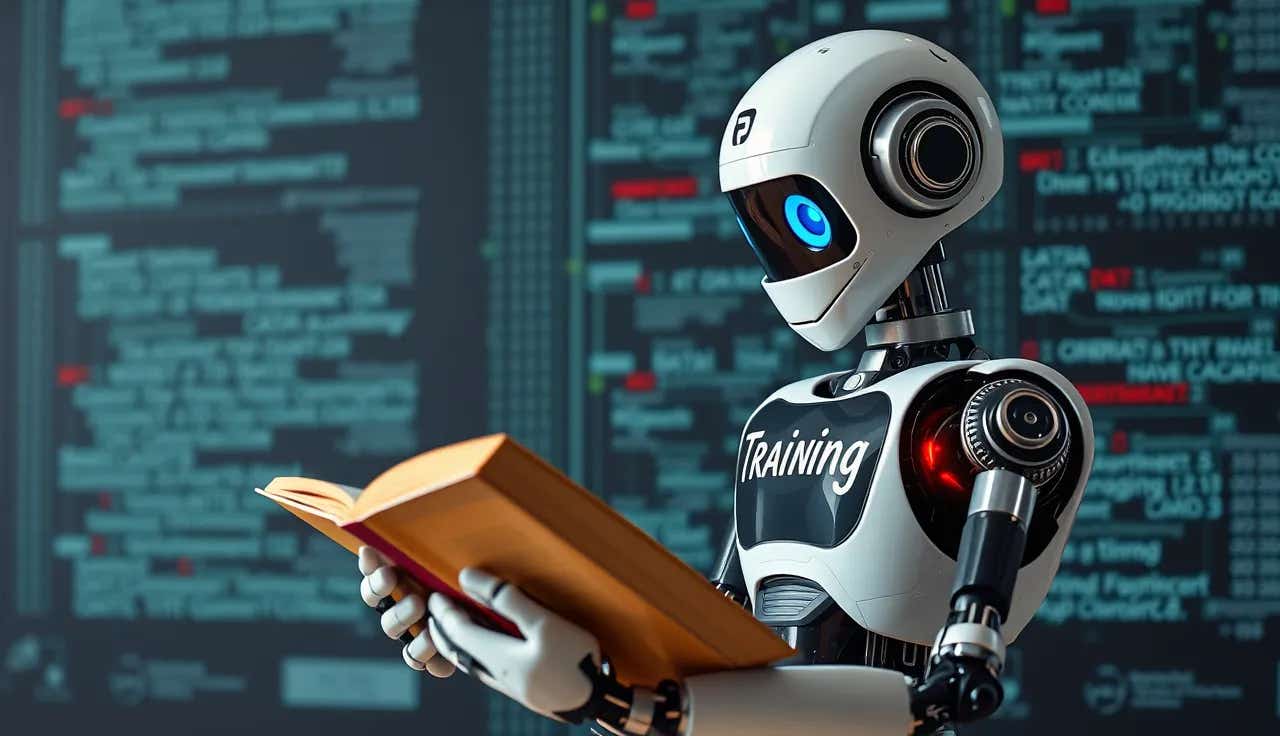AI-powered robot “companions” could combat human loneliness, study finds
A ground-breaking new study suggests that the future antidote to an escalating loneliness epidemic could come from an unexpected source – AI

[July 14, 2023: Staff Writer, The Brighter Side of News]
A ground-breaking new study suggests that the future antidote to an escalating loneliness epidemic could come from an unexpected source - AI. (CREDIT: Creative Commons)
A ground-breaking new study suggests that the future antidote to an escalating loneliness epidemic could come from an unexpected source - artificial intelligence (AI)-enhanced companion robots. This remarkable proposition, made by researchers from Auckland, Duke, and Cornell Universities, isn't simply another sci-fi narrative but a serious examination of how AI could reshape our understanding and treatment of loneliness and isolation.
Published in Science Robotics, the researchers’ report charts a bold new course for ethical considerations in the era of AI, with recommendations for governments, policymakers, technologists, and clinicians alike. The authors highlight the pressing need for stakeholders to converge in their efforts, with the aim of developing rapidly evolving guidelines that cover aspects of trust, agency, engagement, and real-world efficacy.
In addition to the call for a cooperative ethical roadmap, the report outlines a proposal for a novel measurement system designed to gauge the effectiveness of a companion robot in mitigating loneliness in its human partner.
Professor Murali Doraiswamy, MBBS, FRCP, who hails from Duke University and is a distinguished member of the Duke Institute for Brain Sciences, succinctly summarized the current predicament, “Right now, all the evidence points to having a real friend as the best solution,” he said. “But until society prioritizes social connectedness and eldercare, robots are a solution for the millions of isolated people who have no other solutions.”
Related Stories
Professor Doraiswamy’s sentiment sheds light on an alarming trend. The number of Americans who report having no close friends has quadrupled since 1990, according to the Survey Center on American Life. A pervasive sense of loneliness and social isolation is estimated to affect a third of the world's population.
This insidious issue brings with it profound health implications, with loneliness linked to an increased risk for mental illness, obesity, dementia, and even premature death. U.S. Surgeon General Vivek H. Murthy, M.D., suggests that the health impacts of loneliness may be as harmful as smoking cigarettes.
Given these significant societal and health challenges, the report suggests that AI-imbued companion robots could provide an innovative means of support for socially isolated older adults. As making new friends becomes increasingly difficult with age, these technologically advanced companions could offer a revolutionary solution.
“AI presents exciting opportunities to give companion robots greater skills to build social connection,” emphasized Elizabeth Broadbent, Ph.D., professor of Psychological Medicine at Waipapa Taumata Rau, University of Auckland. “But we need to be careful to build in rules to ensure they are moral and trustworthy.”
Companion robots with AI may usher a new science of social connectedness that requires the development of ethical frameworks. (CREDIT: Science Robotics)
Illustrating the potential impact of AI, social robots like the ElliQ have been involved in thousands of human interactions, with nearly half centered on simple companionship activities, such as sharing a cup of tea or coffee. A growing body of research indicates that these companion robots can alleviate feelings of stress and loneliness while also enabling older individuals to stay healthy and active within their homes.
Advanced AI programs, such as the generative AI model ChatGPT, give newer generations of robots the ability to foster stronger social connections with humans. These advancements allow robots to partake in more spontaneous conversations and even mimic the voices of old friends and loved ones who have passed away.
Advanced AI programs, such as the generative AI model ChatGPT, give newer generations of robots the ability to foster stronger social connections with humans. (CREDIT: Creative Commons)
Medical professionals are largely supportive of these AI-infused companions as well, as the report notes. A Sermo survey conducted among 307 care providers across Europe and the United States revealed that 69% of physicians agreed that social robots could provide companionship, relieve isolation, and potentially improve patients’ mental health.
Furthermore, 70% of doctors believed that insurance companies should cover the cost of companion robots, provided they were demonstrated to be an effective supplement to human companionship. However, quantifying a robot’s impact remains a challenging task.
To address this issue of measurability, the researchers have developed a patient-rated outcome measure known as the “Companion Robot Impact Scale” (Co-Bot-I-7). This scale is intended to measure the effects of companion robots on physical health and loneliness. Preliminary results from this measure suggest that companion robots might already be effective at mitigating these issues.
For instance, early findings from Professor Broadbent’s lab indicate that friendly androids can assist in reducing stress levels and even enhance skin healing following minor wounds.
The researchers concluded their report on an optimistic note, “With the right ethical guidelines, we may be able to build on current work to use robots to create a healthier society.”
The report was authored by an esteemed group of researchers, including Dr. Doraiswamy and Professor Broadbent, Mark Billinghurst, Ph.D., and Samantha Boardman, M.D. Professor Broadbent and Dr. Doraiswamy have previously served as advisors to Sermo and other technology companies. The innovative Co-Bot-I-7 scale was co-developed by Dr. Doraiswamy, Professor Broadbent, and Dr. Boardman.
With the world facing an accelerating loneliness epidemic, this research presents a compelling case for integrating AI-enhanced companion robots into our society. By leveraging AI, ethical guidelines, and a keen focus on patient-rated outcomes, we may yet transform a mechanical solution into a heartfelt remedy for isolation and loneliness.
Note: Materials provided above by The Brighter Side of News. Content may be edited for style and length.
Like these kind of feel good stories? Get the Brighter Side of News' newsletter.



